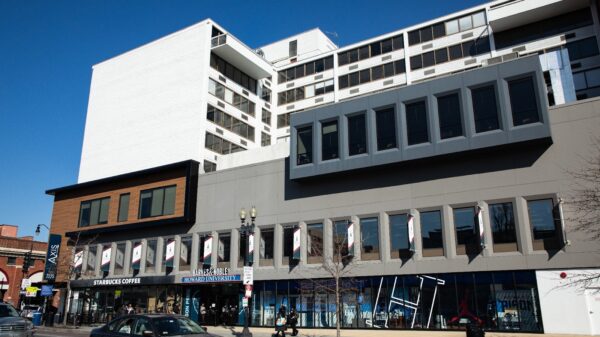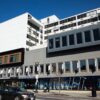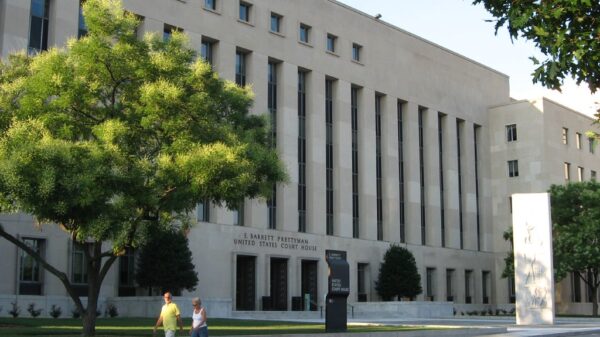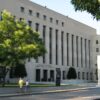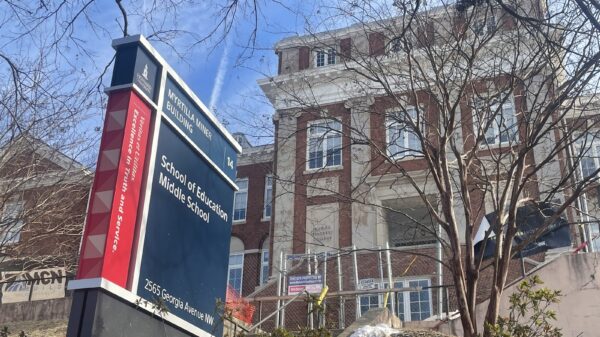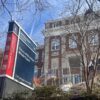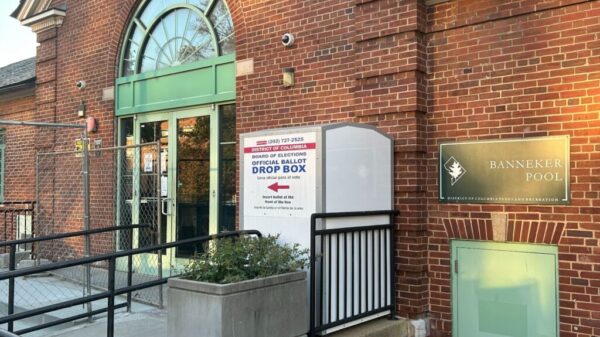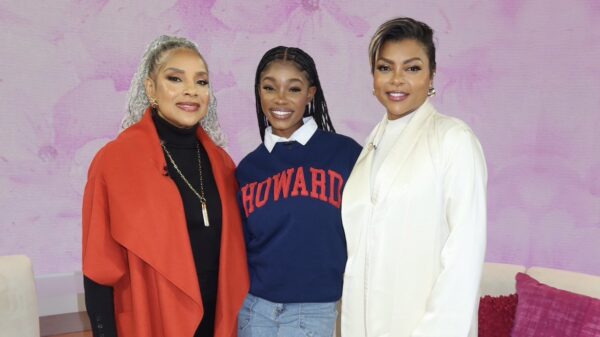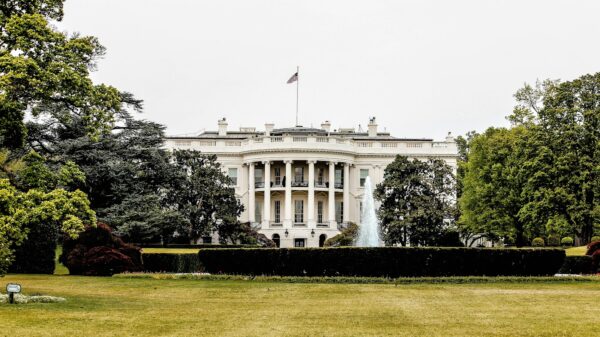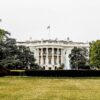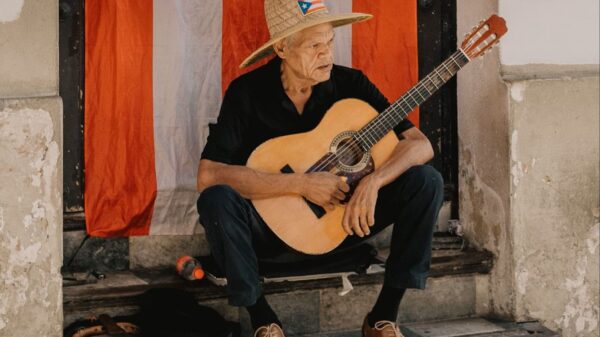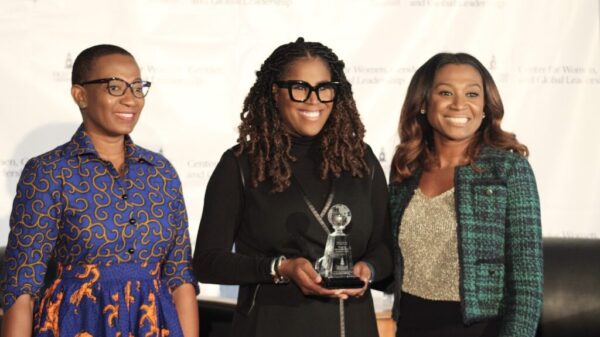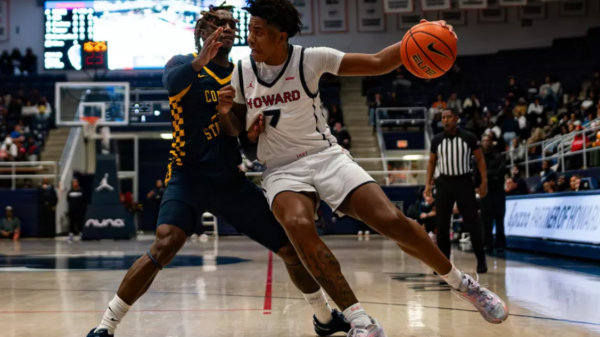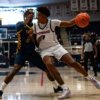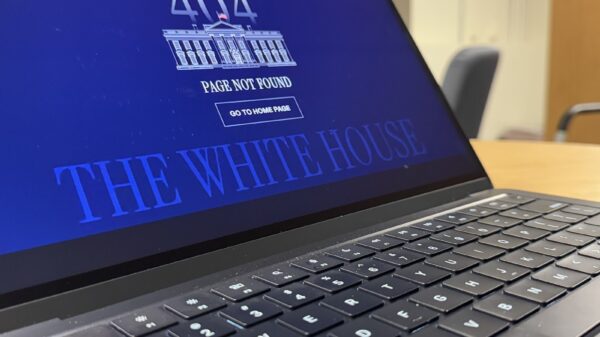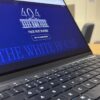Student protesters in the #BlackburnTakeover have received support from various Howard University departments, faculty groups and graduate programs. Howard School of Law students attended the ongoing protest Oct. 12-15 as legal observers; their goal was to protect protesters’ rights and prepare them for encounters with law enforcement.
“Legal observing isn’t about making sure protesters aren’t violating any laws. It’s done to protect protesters and ensure that they have their rights respected by any police officer that comes around them,” Justin Hansford, executive director of the Thurgood Marshall Civil Rights Center (TMCRC) at Howard University School of Law, said.
Members of Howard’s Public Interest Law Society and Black Law Student Association were encouraged by Professor Hansford to serve as legal observers of the protest. They also chipped in to buy supplies and basic-needs items for the students protesting, and watched to ensure students were in compliance with Howard’s Student Code of Ethics.
In an attempt to avoid fatal escalations of civilian-police encounters, the TMCRC provides training for law students to learn how to ensure students’ safety from police.
Legal observers are known to wear yellow, green or orange hats, and are not attenders of a given protest. They do not mingle, mix or organize when their hat is on, but closely observe police activity and take notes. “If law students want to participate in the protest they need to turn in their yellow hat and transition from observer to protester because those are two different things,” Hansford said.
Much of the TMCRC’s work consists of supporting the protesters around the country that fight for better living conditions for Black people. The Center supported Howard students who protested the killing of George Floyd and broader systemic police violence in a similar manner.
Bilqis Wilkerson, a Howard alum and managing director of the Thurgood Marshall Civil Rights Center, noted the historical significance of housing issues for Howard students.
“In her autobiography, Pauli Murray wrote about living on campus in unacceptable conditions, calling her experience Jane Crow because women were treated worse than men, and Thurgood Marshall was from Baltimore and commuted, probably because on campus housing has been a problem forever,” Wilkerson said.
Pauli Murray was an influential civil and women’s rights activist, author, priest and lawyer who attended Howard University School of Law between 1941-44.
“I think that we are at a moment with Howard Forward where things can be better than they have ever been,” Wilkerson said.
As mutual aid strategies are implemented, students continue to receive support from student and community organizations such as The Live Movement, Harriet’s Wildest Dream D.C. and the Democratic Socialist Association.
Graduate students in Howard’s School of Divinity, School of Social Work, members of the Graduate Student Council, Howard’s Faculty Senate and alumni have also donated and issued statements of support as students continue to advocate for institutional accountability.
The #BlackburnTakeover protest developed after only students showed up to a planned town hall meeting in the Blackburn Center between administration, Howard’s Board of Trustees and students. Out of frustration, the students occupied the building for a peaceful sit-in.
Protesters are seeking to have the student, faculty and alumni trustee positions reinstated into the Howard Board of Trustee bylaws, and to have housing issues addressed as many cited deteriorating conditions.
Jy’Mir Starks is a sophomore from Creston, South Carolina, and an intern for the TMCRC, who has supported the protest. Like many students, he believes the protest is driven by more than financial, housing and institutional issues.
“It’s difficult to articulate all the problems students have because they’re widespread. It’s not just housing and stems back to before I came. Considering the pandemic, students demanded a ‘pass or fail’ system but it wasn’t met, and many scholarships were taken because of that, making Howard unaffordable,” Starks said.
The TMCRC is Howard University’s flagship institutional setting for the study and practice of civil rights, human rights, racial justice law and advocacy. The Center provides training for Howard University students to engage in building community power through organizing on the local, national and international levels.
“In that spirit, we fully support the student’s organizing efforts to obtain improved housing conditions and to gain more opportunities to participate in university decision-making and governance,” Hansford said.
Copy edited by: N’dia Webb




